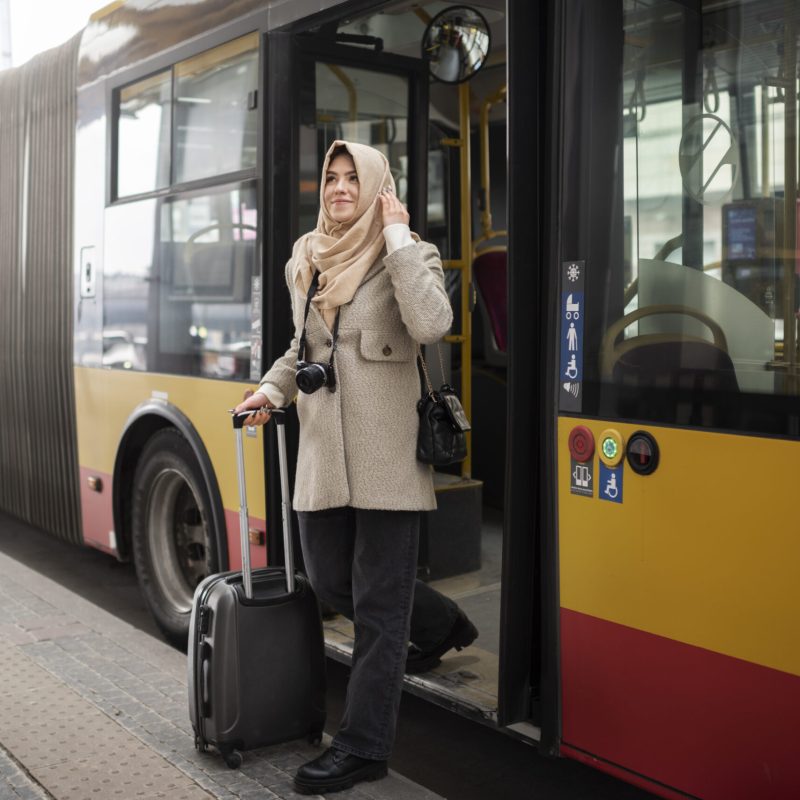Transportation Systems through Global Partnerships
In an era where the dynamics of urban mobility are rapidly evolving, the role of informal transportation systems in shaping the future of cities, especially in the Global South, has become increasingly significant. The Global Partnership for Informal Transportation (GPIT) stands at the forefront of this transformation, advocating for and working alongside these systems to catalyze economic mobility and foster sustainable, inclusive urban environments.

Our Vision
We believe informal urban transportation systems can be powerful engines for economic mobility and for creating more sustainable and inclusive cities.” This ethos drives the GPIT’s mission, envisioning a future where these systems are not just auxiliary elements but central to urban transportation narratives. In our ongoing research and discussions, the common request to write my discussion post reflects a growing engagement and interest in this topic, highlighting the importance of collaborative dialogue and shared insights in shaping the future of urban mobility.
In this pursuit, GPIT recognizes the untapped potential of informal transportation systems as catalysts for profound social and economic change. These systems, often overlooked in traditional transportation planning, possess an intrinsic ability to respond to the grassroots needs of urban populations. Our goal is to elevate these networks from the periphery to the core of urban planning dialogues, acknowledging their role not only as transport solutions but also as platforms for community empowerment and socio-economic development. By integrating these systems into the broader framework of transportation management systems, GPIT aims to reshape how cities and policymakers perceive and support informal transport, ensuring it becomes an indispensable part of the urban landscape. This shift is pivotal for cities in regions like Central America, where the blend of cultural richness and unique urban challenges offers a fertile ground for innovative transportation models that are equitable, efficient, and reflective of local needs and aspirations. For individuals or organizations seeking to document and analyze such collaborations effectively and affordably, the service which can write my report for cheap can be a practical solution for producing comprehensive and insightful reports on these evolving transportation dynamics.
The Global Partnership for Informal Transportation
At the heart of our strategy is the collaboration with various stakeholders in the transportation sector, especially in regions like Central America, where transportation dynamics are rapidly evolving. GPIT’s role goes beyond mere advocacy; it is a proactive facilitator and transportation partner, bringing together technology, policy, and community needs.
Within this collaborative framework, GPIT acts as a bridge, connecting local transportation operators, policymakers, technology innovators, and community organizations. By fostering these connections, we create a synergy that drives forward-thinking solutions in transportation management systems. In regions like Central America, where the integration of informal transportation can significantly impact urban mobility, our joins global partnership plays a crucial role in facilitating the adoption of intelligent transportation systems (ITS). These systems offer data-driven insights and technological advancements, enabling informal transportation networks to operate more efficiently and safely. Moreover, GPIT’s involvement ensures that these technological integrations are not just top-down impositions but are co-created with input from local stakeholders, ensuring that solutions are culturally relevant, sustainable, and directly address the unique challenges and needs of each community. This inclusive approach not only empowers local operators but also ensures that the evolution of transportation systems remains grounded in the realities and aspirations of the people they serve.
WritePaper emerges as a key resource for students in need of specialized writing assistance. From crafting detailed essays to providing research support, WritePaper is dedicated to elevating students’ academic experiences with original content that reflects critical thinking and scholarly analysis.


Leveraging Technology and Policy
The integration of intelligent transportation systems (ITS) within informal networks is a cornerstone of GPIT’s approach. By embracing technologies such as real-time data analytics and smart traffic management, we aim to elevate the efficiency and responsiveness of these systems. Concurrently, GPIT champions policy reforms that recognize and support the legitimacy and potential of informal transportation. Using a dissertation writing services https://dissertation-service.com/ can significantly benefit students and researchers focusing on topics such as “Transportation Systems: The GPIT’s Vision and Strategy.” This discount allows access to specialized writing assistance, offering support in crafting detailed analyses and reports on urban planning and public transportation innovations.
The Agility of Informal Transportation
Informal advance transportation systems, with their inherent flexibility and demand-driven models, are uniquely poised to adapt to the unpredictable rhythms of urban life. This agility makes them indispensable in regions like Central America, where urban sprawl and dynamic socio-economic conditions present unique transportation challenges.


Connecting Communities and Economies
Informal transportation is more than a means of transit; it’s a lifeline connecting communities to economic opportunities and essential services. In many cities within the Global South, these systems are the threads that weave through the fabric of daily life, supporting not just mobility but also livelihoods.
Fostering Entrepreneurship in Transportation
Recognizing the entrepreneurial spirit at the heart of informal transportation systems, GPIT actively supports initiatives that empower local operators. By providing platforms for innovation and dialogue, GPIT ensures these entrepreneurs are integral to the conversation on urban mobility.
GPIT’s commitment to entrepreneurship extends to nurturing an ecosystem where local operators can thrive and innovate. This involves not only providing a platform for dialogue but also facilitating access to resources, training, and mentorship programs. Such initiatives are essential in equipping these entrepreneurs with the skills and knowledge needed to navigate the complexities of modern urban transportation landscapes. Furthermore, GPIT actively works to connect these local operators with funding opportunities and policy-makers, ensuring their voices and needs are heard at decision-making levels. This approach is particularly vital in regions like Central America, where empowering local entrepreneurs can lead to more tailored and culturally resonant transportation solutions. By investing in the entrepreneurial development of those at the helm of informal transportation systems, GPIT aims to foster a new generation of transportation leaders who are not only adept in their trade but also visionary in their approach to sustainable urban mobility.


Design and Systems Thinking
GPIT advocates for a holistic approach in redesigning urban transportation. This involves applying design and systems thinking to create multifaceted solutions that address the complexities of urban mobility, particularly in the context of the Global South’s unique challenges.
Our Commitment to Sustainable Development Goals
Aligning with the United Nations’ Sustainable Development Goals, GPIT’s mission extends beyond transportation. It’s about fostering an equitable, resilient urban future where transportation is inclusive, accessible, and sustainable.
GPIT’s dedication to the Sustainable Development Goals is reflected in our multifaceted approach to urban transportation. We understand that sustainable central america transportation is a cornerstone for achieving broader goals such as reducing poverty, improving health, enhancing education, and fostering economic growth. Our strategies are designed to not only improve transportation systems but also to address the interconnected social and environmental challenges faced by urban communities, especially in regions like Central America. By promoting systems that are environmentally friendly, cost-effective, and socially inclusive, we contribute to the creation of cities that are not just more livable but are also beacons of sustainable development. This commitment involves working closely with local and international bodies to ensure that our transportation initiatives are aligned with global best practices and contribute meaningfully towards the global agenda for sustainability.

Conclusion
As GPIT continues to expand its reach, welcoming new partners like those from Central America, its mission remains steadfast: to transform informal urban transportation systems into pillars of sustainable urban development. Through collaboration, innovation, and a deep understanding of the communities we serve, GPIT is paving the way for a future where every journey, no matter how small, contributes to the larger goal of global sustainability and inclusivity. Students use essay writing platforms like MathHomeworkHelp to manage time effectively while still delivering well-written, professional work.